
Part 2 MARK STATMAN: MEXICO AND THE POETRY OF GRIEF AND CELEBRATION
Part 2 of my interview with Mark Statman looks closely at Mark’s Latin American poetic influences, his life in Mexico and ends with an extract
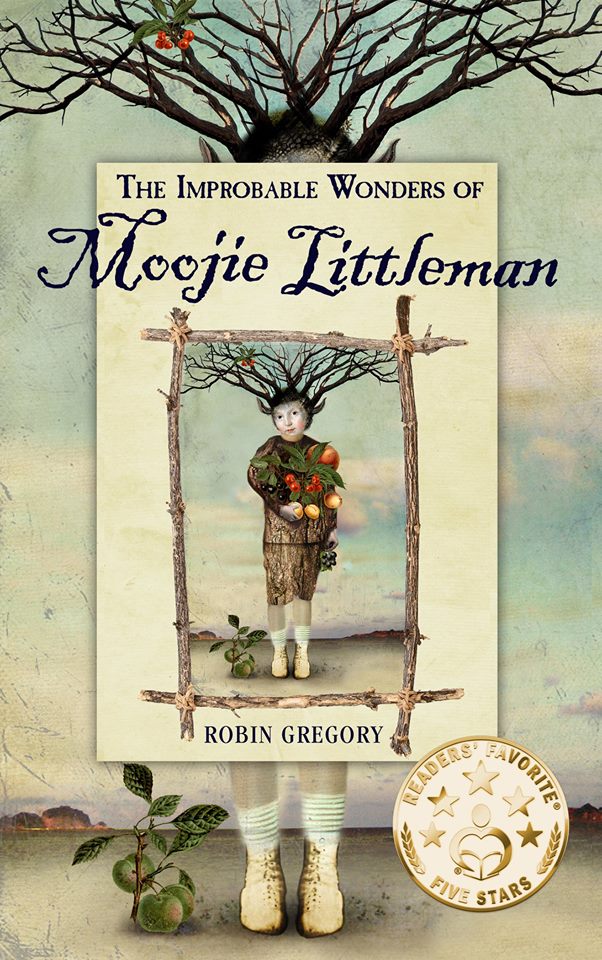
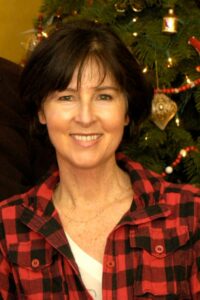
I interviewed Robin Gregory whose extraordinary debut novel The Improbable Wonders Of Moojie Littleman has already won 14 literary awards and is being adapted for a film. Her book contains moral allegory, mysticism, and lyrical prose; it tells the story of a disabled boy who is sent to St. Isidore’s Fainting Goat Dairy, where his determination to ‘belong’ fuels his self-discovery.
Robin studied World Literature and Creative Writing at the University of California, Santa Cruz; she is a carer and a deeply spiritual person who runs a Facebook page called The Healing Tree and her website is called, rather appropriately, www.MadMysticalJourney.com
Leslie: How did you discover the very individual voice of The Improbable Wonders of Moojie Littleman?
Robin: The first drafts of Moojie Littleman were told from the mother’s point of view. I felt they were too prosaic, too mainstream. It took years to find the present voice. The deciding factor was turning the story over to a child’s point of view, which allowed for both a matter-of-fact tone and inventive word play. Giving it a western, early-1900s setting, seasoned it with the gritty flavor of the era, but also the diversity of new immigrant cultures.
Leslie: Can you describe the book’s spiritual journey from conception to print?
Robin: Regarding the spiritual journey, sometimes I feel as though I was given a life that was meant to be rendered as a parable. Christian mystic, Joel Goldsmith, wrote about the “Cosmic Voice” that looks for artists, musicians, writers, dancers, through which it can express transcendental ideas. I studied Literature and Creative Writing in college, and knew the power of fiction to bring about change, but had only made timid stabs at writing fiction. While working as a journalist, I wrote my first novel – a terrible thing that I’m glad to say never got published. Ha! Around this time, my husband and I adopted Julien, a baby boy with special needs. I stopped pursuing journalism to be a full-time mom. Raising him has not been an easy path, but I can now say it has been the greatest gift I’ve ever received. It forced me to commit to spiritual study, to give up non-essential activities and relationships. It drove me into a state of utter humility and surrender, and that was when I began to feel God communicating, revealing, guiding the direction of my life. The story took thirteen years to get right. I had to learn to write better, but also I had to grow spiritually in order to tell the story.
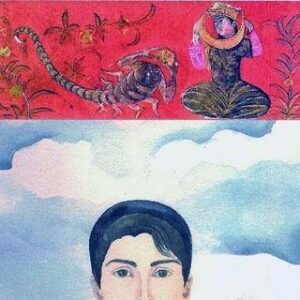 I was literally kidnapped by the story. I couldn’t turn it off. Characters, dialogue, plots came pouring out, day and night. Every day, life with Julien was presenting me with new spiritual lessons to practice, with forgotten memories and new scenarios, that needed to be include in the story. I was living it as I wrote it.
I was literally kidnapped by the story. I couldn’t turn it off. Characters, dialogue, plots came pouring out, day and night. Every day, life with Julien was presenting me with new spiritual lessons to practice, with forgotten memories and new scenarios, that needed to be include in the story. I was living it as I wrote it.
Awakening has been a journey of fits and starts for both my son and I. Often when everything seems to be out of control or upside-down, I’m being healed of some old limiting pattern so that something new can emerge in its place. Like Moojie, Don Quixote, José Arcadio Buendía, and Ulysses, we suffer most when we charge ahead of our inner compass, thinking we have “human” solutions.
Leslie: Is there anything you’d like to add to or comment on in my wife’s review of your novel? (see end of interview for text of review)
Robin: I am so grateful when a reader is willing to set aside expectations and take in Moojie’s free-spirited narrative for the pure adventure of it. This is the best I could hope for; to take the reader into a new geography where they can perhaps rediscover something forgotten in themselves, something pure and original. A child’s view of society can be complex, revealing, and innocently brutal. It can also make non-rational and intuitive elements feel natural. And yes, it’s all about love.
Leslie: What aspects of you/your experience were important triggers for episodes/references in your novel?
Robin: I was raised in a highly combustible, overpopulated, Catholic home, where behavioral norms of a war hero father were dangerous, frightening, and fickle. Unspoken rules were designed to squelch individual needs. This led to heartache, loneliness, and feelings of “not belonging.” Childhood was my first “wilderness experience.” The grandfather’s character came from my father. I love the irony of the broken warrior trying to help the wounded healer. Kate and Henry, Moojie’s parents, represent the polarities and limitations of unawakened love. Kate is like the younger me. She is fiercely devoted to her son, and believes human love will conquer all. Henry is nothing like my husband, except for his being a mapmaker and piano player. In order for Moojie to have his wilderness experience, I felt he needed to lose his mother and to be in conflict with his father. Henry was drawn from a montage of fathers I’ve known, fathers who aren’t bad people, they are just in the “bud stage” of their bloom.
Another important aspect of Moojie’s story comes from my own struggle to connect with the Source. Like Moojie, my belief in God was tainted rather than helped by religion. In parochial school, the nuns, God bless them, did not have a clue how to read me, and increased feelings of shame and failure that had sprouted in the home environment. I spent twenty years looking for solutions to heal a sense of bewilderment, anxiety, and worthlessness. A few years before our son came along, a Christian Science friend gave me Science and Health, by Mary Baker Eddy. I looked at a few pages, didn’t have a clue what she was saying, puzzled over “God is Love,” and shelved it.
In spite of his difficulties, Julien was proving at a young age to be the most kindhearted, charming, courageous, bright boy I have ever known. When family and strangers distanced themselves from him, he continued to offer them kindness. When other children excluded him from play, he smiled at them. Looking after him required a tremendous amount of effort, organization, endurance, and patience, of which I had little. Raising him triggered old hidden anxieties and wounds associated with my past. You see, a child who didn’t sit up, walk, talk, or think for himself, would have been a prime target for abuse in my family. I needed strength and grace that had never been modeled for me. When a family member suggested we take him back to the adoption agency, I was shocked. It had never occurred to me. I started seeking spiritual answers. Trial and error proved the correlation between surrender and physical healing, and I grew to believe that anything could be healed, that no problem was immune to Grace.
 Moojie’s journey is a composite of both my son’s and my own awakening. We both have been growing, either through the pain of our own willfulness, or through surrender to the greater mysteries of life. But God is infinitely patient, and will grant us all the time we need to awaken. While Moojie’s life might seem tragic, the difficulties serve a crucial purpose: they are exactly what causes him to develop his inner resources, to master his gifts, and realize his true purpose.
Moojie’s journey is a composite of both my son’s and my own awakening. We both have been growing, either through the pain of our own willfulness, or through surrender to the greater mysteries of life. But God is infinitely patient, and will grant us all the time we need to awaken. While Moojie’s life might seem tragic, the difficulties serve a crucial purpose: they are exactly what causes him to develop his inner resources, to master his gifts, and realize his true purpose.
Leslie: Does the idea of writing as an act of worship, a miracle or a healing process resonate with you? In what ways has writing helped you explore your deeper self/the deeper sides of the world?
Robin: What wonderful questions. Leave it to a poet to ask them! Writing for me is a miracle in a way, at least, when I remember to include the Creator in the process. Transcendental ideas converge in my mind in a very holy way, but they are often so pure and high that they need rendering for the human consciousness to grasp them. I used to make the mistake of sharing revelations in conversation, and they often fell on deaf ears. The human mind needs parables, allegories, myths, poems to translate what is communicated from the higher planes. “Feed them milk,” Jesus used to say to his disciples. Writing for me is a lot like healing work. It involves forgetting the little human self, and aligning to the infinite will of Love. Angels, masters, guides, and saints are available to help bring the Cosmic Voice through. They won’t interfere unless asked. They are happy to help; they are happy to play. It is indeed a privilege.
Leslie: Would you like to expand on your statement ‘Since experiencing a deeply transforming spiritual experience in 1995, I have witnessed many healings, and have given my life in service to others’?
Robin: About three years into being a mom, all that I knew as ‘my life’ had been crushed under the weight of our son’s needs. Our days had been circumscribed by one intervention program or another: physical, occupational, and speech therapies, infant stimulation programs, orthopedic equipment, walkers, braces, arm splints, etc. And none of it seemed to be making much of a difference. Julien walked with a walker, but didn’t use his left hand or talk much. He was terribly frustrated, and had a lot of emotional meltdowns. His future looked dim, indeed. It was a very dark moment for me, the fool who had believed that love could conquer anything. At that point, I rarely prayed and didn’t feel a spiritual calling.
I remember one morning collapsing into tears and praying. I wasn’t praying to anyone or anything in particular, just pleading for help. All of a sudden I felt a tremendous, loving presence. And it was as if a gentle hand lifted my chin and turned my face toward the bookshelf. My eyes fell on ‘Science and Health’, the Christian Science text. This time when I opened the book, the words spoke directly to me. I felt them. “God is Love” suddenly made perfect sense.
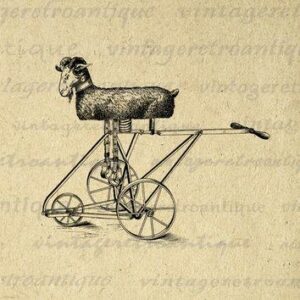
My heart burst open with new possibilities. Life took on new meaning, and my days were centered around spiritual inquiry, guidance and revelation. Gradually, I began to experience healings of colds, food poisoning, aches and pains. My study grew to include Eastern and Middle Eastern mysticism. The human sense of ‘Robin’ was dissolving. At a young age, Julien was very receptive to the ideas in the book. He started experiencing healings, too. In fact, several wondrous events in Moojie Littleman were taken directly from our life. I don’t credit myself or my son for having any special gifts. In fact, it is the clearing out of any personal sense of ‘specialness’, good or bad, that allows the miracles to appear. All of us are wired for miracles. But not everyone who asks for help is willing to receive. Okay, I’ll save that for another interview!
Leslie: What, in your view, is the relationship between disability (and/or illness?) and creativity?
Robin: I believe that disability and disease—disorder of any kind—are forgotten parts of us longing for acceptance. Such appearances may cause us to be marginalized and isolated, but they are also showing us what we have accepted (quite innocently) as possible or true for ourselves. Problems tend to slow us down, call us into self-questioning, tear down our belief systems. Is that a bad thing? How can it be when the very same process stokes the embers of self-discovery? Creativity that arises from a broken heart—art that comes through a blind painter, literature that comes from a disabled writer— can be extraordinary in its ability to heal. Disabilities, disease, disorder of any kind are signposts. When we use them as opportunities to seek after the original self—the spiritual idea—that appears as the physical, challenges can open the doorway to heaven.
Leslie: Which pieces of writing/authors have influenced you most as a writer? What have you drawn from their writing?
Robin: There are so many. I think I have been influenced by every literary work I’ve ever read, especially the classics. Magical things happen when I write from a trusting, childlike state of mind, when I follow ideas that don’t at first make sense. The poetry of Rilke, Hafiz, and Rumi helps me get into “the zone.” The literary works that most influenced the direction and execution of Moojie Littleman were: Homer’s Odyssey, Cervantes’ Don Quixote, The Metamorphosis by Kafka, and One Hundred Years of Solitude, by García Márquez. They helped inspire the use of irony, and the modeling of anti-heroes who struggle with willfulness and self-sabotage. Oliver Twist was a great model for putting grownup society under the magnifying glass. Rudyard Kipling’s Just So Stories gave me permission to play with language.
Leslie: Why do you write?
Robin: I always chuckle when asked this question because writing is as natural, and almost as crucial, to me as breathing. Wouldn’t it be funny to ask someone “Why do you breathe?”
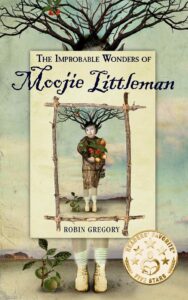 Writing came out of necessity. Looking back I think I was imprinted to experience things in a revelatory way. I always felt drawn to unseen worlds, dreams, prophesies, angels, unknown mysteries. The invisible realm made more sense to me than the visible. The individual who most influenced me was my father’s mother. Unfortunately, she lived in Southern California, so I didn’t see her often. Granny used to wear pearls and cotton driving gloves, and she served tea and cookies to me and my seven siblings. Her love for the finer things in life, art, cooking, French poetry, and literature must have rubbed off. In kindergarten I started making little picture books to mail to her and my grandfather. Years later, after they passed on, I found them in their house. They’re pretty goofy.
Writing came out of necessity. Looking back I think I was imprinted to experience things in a revelatory way. I always felt drawn to unseen worlds, dreams, prophesies, angels, unknown mysteries. The invisible realm made more sense to me than the visible. The individual who most influenced me was my father’s mother. Unfortunately, she lived in Southern California, so I didn’t see her often. Granny used to wear pearls and cotton driving gloves, and she served tea and cookies to me and my seven siblings. Her love for the finer things in life, art, cooking, French poetry, and literature must have rubbed off. In kindergarten I started making little picture books to mail to her and my grandfather. Years later, after they passed on, I found them in their house. They’re pretty goofy.
I started journaling as a teenager, and writing poetry, then short stories. It was not with the dream of being a writer; it was the only way I seemed to be able to process events, circumstances, relationships. The sixties brought new chaos with them, women’s lib, drugs, sexual liberation, racial divides, the war, power shifting to the individual. It was all quite bewildering for someone like me who had no purchase on a ‘self’ to empower. Writing was a way to witness myself, to observe, to know that I existed. It helped me find myself in the seams of the inner and outer world.
Sue Hampton reviews The Improbable Wonders of Moojie Littleman:
| ‘This is an extraordinary book, quite unlike anything else. Pick any page to see that. Moojie is the boy the world rejects because physically and mentally he’s ‘not right’ – until he becomes a hero beyond his own imagining. It might be called magic realism, or just exuberantly eccentric fantasy rooted in humanity but exploring the vastness of wild imagination. Linguistically it’s stunning, virtuoso. Of children’s authors I’ve read, only Geraldine McCaughrean explores territory anything like it. I do wonder how many of today’s teenagers will survive its challenges, since the vocabulary borrows from its late nineteenth century setting | and has a formal complexity as far from the mainstream as the poetic, free-spirited imagery – so I did wonder who it’s for, apart from authors like me, but I was in awe, rereading certain passages for the joy of the language. I’m not a plot person and the action could have ended sooner for me, but there’s enough for the story to work as a trippy animation. For me, though, it’s the heart and soul of Moojie and the Dickensian adults in his crazy, difficult world that gives this novel its own unique voice and makes it sing. Like all great stories it’s about love, and as Moojie overcomes the difficulties his difference presents, it soars.’ |
In next week’s interview, IS THERE LIFE AFTER MONEY? financial/environmental expert Cat Turner describes her campaigns to create a new Green vision for the Isle of Man.
ABOUT LESLIE TATE’S BOOKS:

Part 2 of my interview with Mark Statman looks closely at Mark’s Latin American poetic influences, his life in Mexico and ends with an extract

I interviewed international poet and translator Mark Statman about Volverse/Volver, his 14th published collection. Mark, who has won national arts awards, is Emeritus Professor of Literary

I interviewed Lisa Dart, finalist in the Grolier, Aesthetica and Troubadour Poetry Prizes and author of The Linguistics of Light (poems, Salt, 2008), Fathom (prose

I interviewed writer Julia Lee Barclay-Morton about her experience of autism. Julia began as an experimental dramatist in New York, moving to the UK to

I interviewed Gillean McDougall from Glasgow, who edited the collaborative projects Honest Error (on Charles Rennie Mackintosh and his wife Margaret Macdonald) and Writing the
| Cookie | Duration | Description |
|---|---|---|
| cookielawinfo-checkbox-analytics | 11 months | This cookie is set by GDPR Cookie Consent plugin. The cookie is used to store the user consent for the cookies in the category "Analytics". |
| cookielawinfo-checkbox-functional | 11 months | The cookie is set by GDPR cookie consent to record the user consent for the cookies in the category "Functional". |
| cookielawinfo-checkbox-necessary | 11 months | This cookie is set by GDPR Cookie Consent plugin. The cookies is used to store the user consent for the cookies in the category "Necessary". |
| cookielawinfo-checkbox-others | 11 months | This cookie is set by GDPR Cookie Consent plugin. The cookie is used to store the user consent for the cookies in the category "Other. |
| cookielawinfo-checkbox-performance | 11 months | This cookie is set by GDPR Cookie Consent plugin. The cookie is used to store the user consent for the cookies in the category "Performance". |
| viewed_cookie_policy | 11 months | The cookie is set by the GDPR Cookie Consent plugin and is used to store whether or not user has consented to the use of cookies. It does not store any personal data. |
6 responses
Thank you, Leslie. This is beautifully rendered and presented. You are an artist, as well as everything else!
It was great to have such a strongly-worded piece to play with.
I love this! Each time Robin is interviewed she reveals a little more of herself and her story. Turning oneself completely over to the healing of another is captured in spiritual literature everywhere. In doing this, Robin surrendered herself to a powerful tale of love and wonder. Thanks, Leslie and Robin for this great treat!
And she was so fluent in her replies!
This sounds amazing and so in tune with my world. Just can’t say anything else, the feelings are wonderful. I too experienced a moment in which that golden feeling washed over me and boy, did it change my life. Leslie your interviews and questions are wonderful. Thank you.
Thanks, Adele. I’m glad this lifted you. Robin is an exceptional author & deep thinker.